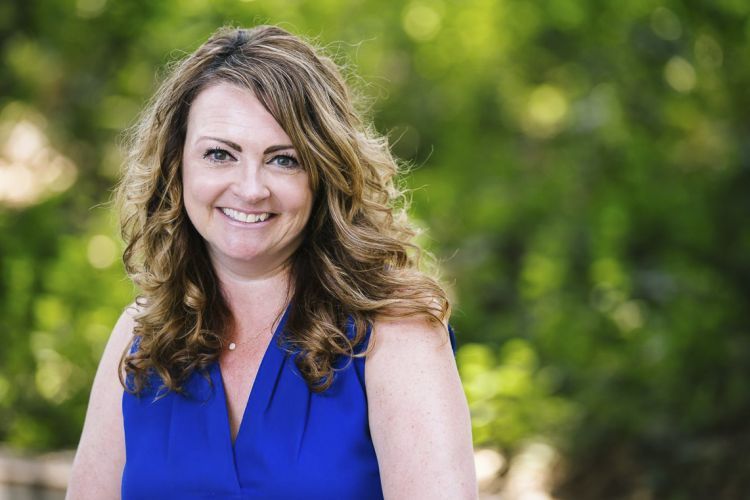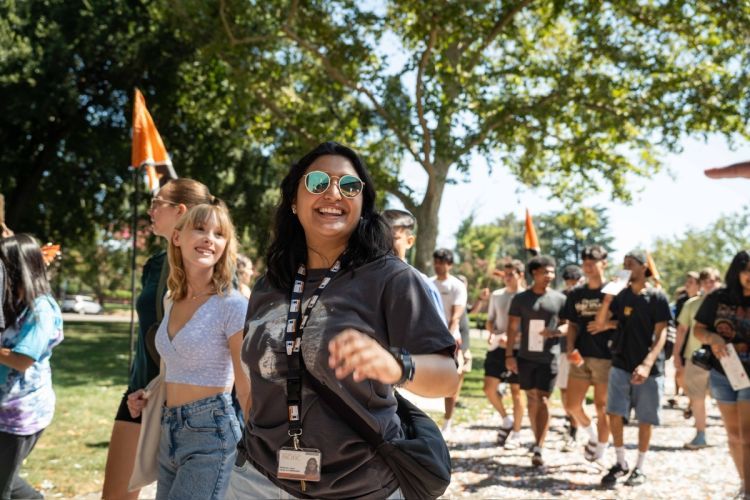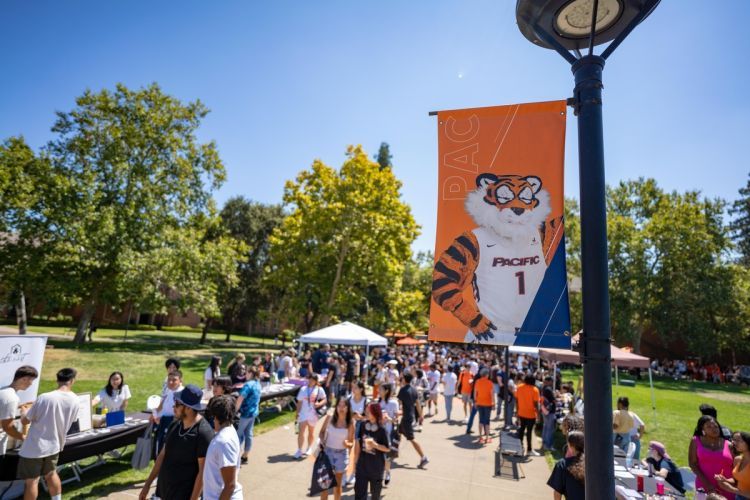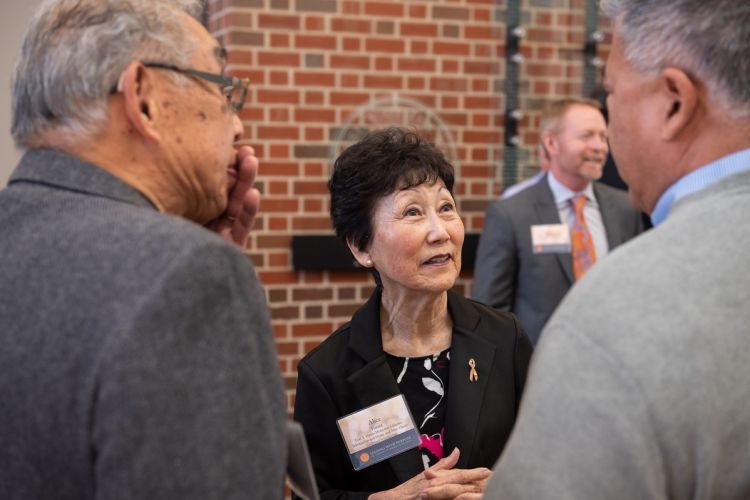Breadcrumb
“Heart in the people” drew new engineering dean to Pacific

Elizabeth Orwin is the new dean of the School of Engineering and Computer Science at University of the Pacific.
Elizabeth Orwin started her role as dean of the School of Engineering and Computer Science at University of the Pacific on July 16. Orwin, who is the first woman to serve as the school’s dean, comes to Pacific from Harvey Mudd College, which is the No. 2 in the nation among all engineering programs that do not grant doctoral degrees.
In a recent interview, she shared what drew her to Pacific, her path to engineering and the importance of establishing a culture that embraces diversity.
What attracted you to Pacific?
Orwin: There was so much heart in the people—everyone's so dedicated to what they do and to the students.
What first sparked your interest in engineering?
Orwin: In high school, math was my favorite subject so I knew I was going to do something in STEM. And when I first went to Harvey Mudd as a physics major, it took me about five minutes to realize that physics wasn't the right choice. After a year and a half, I landed on engineering. Engineering is about using math to solve problems.
Can you talk about the gender gap in engineering and what it means to you to be the first woman to serve as engineering dean at Pacific?
Orwin: It is super meaningful. The fact that there are so many women chairs in engineering at Pacific is amazing.
I think the gender gap is solvable—I have watched it happen at Harvey Mudd. Sometimes we tend to focus on numbers, but it's not about numbers, it's about culture. That's where the real DEI (diversity, equity and inclusion) work is. It’s tough work and it requires trust for people to be able to talk and take the chance to fail.
In terms of DEI, what goals do you want the school to work toward?
Orwin: I would like to talk with the team in the School of Engineering and Computer Science about what they have been doing. I would love to see a climate survey if it hasn't been done, and various kinds of data disaggregated by race, gender, ability, international students and different groups of people because that helps you figure out where you have potential issues. You can't fix something you don't know about.
The School of Engineering and Computer Science is well known for its Cooperative Education program. What plans do you have to build on the program’s success?
Orwin: The CO-OP program is excellent. What it speaks to is something that not a lot of engineering programs have figured out—the professional practice piece, which sets Pacific students apart.
I have talked to the school about expanding the opportunities for students in the biomedical space, which is in my wheelhouse, and to help build more partnerships in the Bay Area.
If you were talking with a group of incoming School of Engineering and Computer Science students, what would you most want them to know about you?
Orwin: I'm hoping I get to spend time talking to students. It's important that I get to know them and they get to know me. I'm an immigrant—I moved to the U.S. at the age of 10. It was a weird thing to move to a different culture and then end up in STEM and be a woman in STEM. And to share how just like them, I struggled through the engineering curriculum.
What is your proudest career achievement?
Orwin: As I look back over my last 20 years, the things I'm proud of are: I have built a lab, a research program and a network of biomedical engineering alumni who helped the current students. We didn't have biomedical engineering before I arrived at Harvey Mudd. I built this whole research program based on teaching students how to do research, how to plan their experiments, how to get meaningful data, how to analyze the data, how to build a system and design a system. The other thing I'm proud of is I feel like the engineering department at Harvey Mudd has shifted mindsets in the time that I've been chair. And I wouldn't say it was all me, but I've facilitated the shift into a space of continuous improvements on curriculum development.
What has been one of your important learnings?
Orwin: I'm of the opinion that if you don't fail, you don't learn. One of the things I've tried to do is encourage people to try.
When I started as chair, I didn't realize how much I needed to feel like I was over communicating for people to feel adequately communicated with. I've gotten better at it. That was something at the beginning that I struggled with.
What do you like to do in your free time?
Orwin: My family—I have three kids and a husband—likes to travel. We’ve been all over Europe, we've been to Kazakhstan, we've been to Japan. We like to explore and hike.
I also like to scrapbook. I'm an amateur photographer and I come back from these trips and I put these books together to commemorate the trip. That's my creative outlet. And I love to read—I love to read a physical book.
What is your favorite place that you have visited with your family?
Orwin: That’s hard. We all have different favorites, but I would say that my favorite—the place I like to go to center myself—is the Scottish Highlands. I was born in Scotland and I don't know if there's a connection to the land, but it is just stunningly beautiful there. It's just a beautiful place. The other place that I loved was Japan. It was an unexpected trip and lots of surprises. It's a really lovely place.





